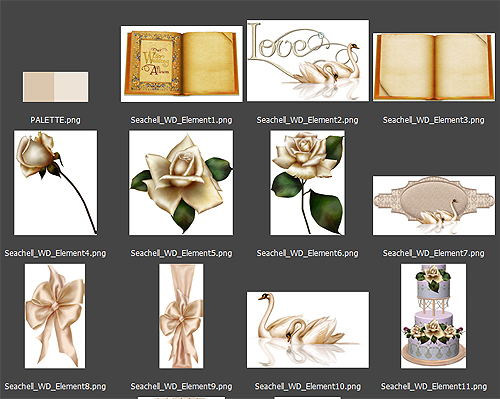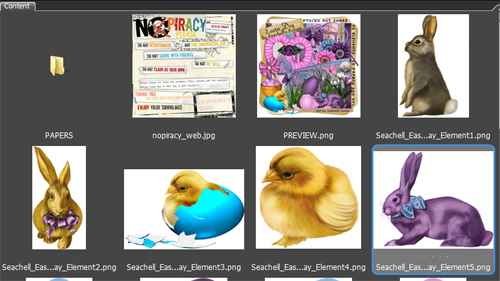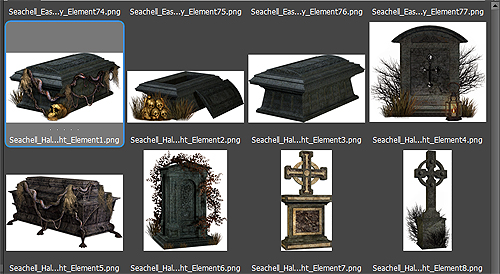|
Anatomy of a Copyright Violation: "Scrapbooking
TOU: What You Can NOT Do"
DIGITAL
PIRACY AND THE RIGHTS OF DESIGNERS
Digital piracy is the theft, reproduction,
or redistribution of a work without the
permission or knowledge of the creator/copyright
holder, without regard to if the work was
purchased or made available at no cost to
the consumer. Digital piracy is illegal
and the rights of creators/copyright holders
as stated above are protected by copyright
law. US Copyright Law that validates this
information can be found here: http://www.copyright.gov/help/faq/faq-digital.html#p2p
Copyright
Myths Uncovered
Excerpt:
a copyright vests in the owner the moment
the artist creates his or her work. The
copyright symbol puts the world on notice
that the owner claims a copyright in the
work. However, the Copyright Act of 1989
no longer requires marking on the work in
order for the copyright to be valid.
FBI
Piracy Website
Yes,
the FBI does monitor cyber piracy and P2P
filesharing websites and takes reports of
crimes on this website (above), although
graphics crimes are small potatoes compared
with what they have to deal with, so the
wheels of justice grind very slowly for
us. It's apparently worth pushing them steadily
forward.
|
In case anyone finds it hard to understand what
can NOT be legally done with my design resources,
I've prepared some visual examples of a recent
flagrant case of copyright violations and filesharing.
In order to ascertain if my work is being used
against my TOU, I actually buy the work where
I find it in a store, download it, open it up
in an directory/folder, and see what's in the
zipfile, then compare images with images that
are in my own store. From the single unfortunate
error I've made in falsely accusing someone
of copyright violation, I've learned to verify
every case. Since there are so many examples
in so many scrapbooking stores, I can't do this
with them all, but this is simply the worst
case I've encountered. There are many others,
but there's just not enough time or wristpower
to show them.
The basic rule of thumb is that a licensee
can NOT resell or redistribute the original
files, as is. Paying for a product
and licensing it does confer the right of resale
and redistribution. That is not permitted by
my license or that any other artist that I know
of. As
explained in my License and TOU,
the images must be incorporated into a derivative
work in such a way that the original work cannot
be easily extractable in its original form and
hence compete with itself in the marketplace
and thereby diminish its own commercial value
to me, the original artist. This has
always
been in my license, it has never
changed, it is standard in the license
of 2d and 3d digital artists, and in brokerages
such as Renderosity, DAZ 3d, RDNA, in scrapbooking
brokerages such as Scrapgirls . . .and on and
on. This license has been in my zipfile for
each product since I've been in business. It's
fairyly simple: The original work can not be
simply resold or redistributed.
Please note:
While a someone may or may not initially
pay for a license to an product, in the act
of resale/redistribution without the permission
of the artist, they in effect become a digital
pirate. Many digital pirates even operate in
groups and pool financial resources to aquire
intellectual or creative property (programs,
DVDs, image resources) to resell or redistribute
through filesharing sites. Filesharing
by digital artists enables many people
to illegally aquire, i.e., steal, the
use of resources instead of paying for it. Paying
for the license does not confer the right to
resell the images.
"Commercial use" does not mean the
images can be resold as is. This is
apparently news to many groups of scrapbooking
kit makers. Very few digital artists grant outright
resale of the original work, any more than authors
give away their intellectual rights. Licenses
are for the USE of the work under specific circumstances.
Some ignorant or naive people fail to understand
this and some unethical people simply ignore
it. But CU or Commerical Use does NOT mean you
are buying a creative resource like a pair of
socks and have the right to resell it.
Obviously, this means that the original
images may not
be used, as is, or with minor changes, to create
scrapbooking kits. "Minor Changes"
includes hue shifts and small graphic additions
which do not inherently change the work. What
has been increasingly added in my TOU page over
the years is further explanation for dense people
who continue to claim they do not understand
what "resale and redistribution" and
"derivative design" means. When you
read what is below, remember that Seachell claims
not to understand what this means, LOL.
Here is the promo image from a scrapbooking
kit which was given away as a freebie on the website
of Seashellscrapz,
in which many elements from my product, "Wedding
Decor" and my "Antique
Roses" were redistributed (given
away) as freestanding elements, in png files with
transparent backgrounds, in exactly the same condition
as were provided in my original zipfile:

I
downloaded and unzipped the zipfile from the "freebie"
kit. As you can see from this screenshot of my
hard drive below (excluding the wedding cake image
which is fair use in a derivative design), there
are 10+ images that were simply lifted out of
my products, resaved as png files and relabelled
with the name of Seachell. Below are shown only
10 examples that were unzipped into a file folder.
I'm just showing this part of the content of the
zipfile for illustration of the contents of the
zipfile of this "freebie" download of
filesharing. Note the name of Seachell has been
now been attached to my digitally painted work.

This
is a good example of what is NOT
permitted by my license
and Terms of Use and what
will result in legal action and public exposure.
Seachell was filesharing the images, in their
original condition, in this kit on her blog
through logger. Yes, this
is filesharing: taking the images which were
digitally painted by me, putting them as
is into another file, and making them available
to the world from a link on her site.
I filed DCMAs with the filesharing company,
of course, but Seachell immediately found another
filesharing company, outside the U.S. This is
typical for digital pirates, who can find new
filesharing companies as quickly as their links
are disabled by DCMAs.
This is one of the problems with digital piracy:
fighting copyright violations through legal
channels is an endless task which interrupts
normal business and costs money and time. It's
costly and there has to be something "collectable"
on the other end to make a lawsuit worth pursuing,
right? You cannot collect from digital pirates,
they are the Internet equivalent of street hooligans.
Hence the value of public exposure over legal
steps or . . ."being nice about it".
Once you've been gang raped by a bunch of digital
pirates, you might as well scream out loud.
Prior to downloading this zipfile and seeing
what was inside, I had started out in a fairly
soft voice and contacted Seachell regarding
violations related to other products. She flatly
denied this kind of usage. I asked that links
to my work on her Blog be removed. She said
she would. Time passed. I accidentally discovered
worse violations and products being sold on
her blog, being distributed through PSP Google
and Yahoo groups, and sold on numerous scrapbooking
stores. When confronted again, in a harsher
tone, she threatened to put the "freebie"
back up and continue to share my files. At that
time, she still had products on her site which
contained my work, used a way that flagrantly
violates my copyright (edited after the links
have been removed by Blogger, perhaps temporarily?
who knows?).
The image below shows files from a product of
Seachells which I bought and downloaded from
Nameless Scrapbooking Brokerage,
which contained many of my digitally painted
images from several products in my store ("Bunny
Bower"), re-labelled with
Seachells name, repackaged into her product
and resold against my license and TOU in a scrapbooking
"kit" called "Easter
Day":

You
see that tan-colored, digitally painted rabbit
on the top right above? When I first inquired
about that in the kit, Seachell told me it was
in compliance with my TOU because she had added
grass to it, thereby changing it into her own
"design", and she sent me a picture
of the bunny with some grass kind of scribbled
behind it. But when bought the product
and found that the image of the rabbit, digitally
painted by me, was being resold, exactly as
is, with no additional grass added to it I realized
Seachell had lied to me (again) and added the
grass ex post facto not thinking I
would just go and buy the product and find out
for myself. Further confrontations ensued, followed
by assertions of the the right to use the images
however she wanted, because she "bought
it", etc., followed by ominous statements,
i.,e., now you get my bad side! This
is typical of digital pirates: serial lying,
denial, followed by more lying like a 2nd grader,
followed by outraged indignation and assertion
of their right to do as they wish anyway. Logic
does not play a part in the discussions at this
point.
Below is a composition of mine from the same
Seachell kit which is sold in my store in the
product "Bunny
Bower". It is Seachell's mistaken
contention that because she "purchased"
the product, she has the right to resell or
redistribute for free whatever is in it. No,
this is neither legally nor ethically correct
and is not even an acceptable behavior in professional
scrapbooking communities, only within criminel
filesharing communities. Read FAQ
For DigiScrappers Here.
Naturally, Seachelll labels this Easter composition
of mine, lovingly
painted and composed by me,
Seachell_EasterDay_Paper1.jpg. This is clearly
against my TOU and that of every digital artist
I know: do not redistribute or resell
the original images as is (in their original
form without incorporating them into a new derivative
design in such a way that they can not be easily
extracted and resold). Below is one
of the exact images from a product she was sold
and it is the exact image she was reselling.
It is against my TOU and license to
resell it as is and
always was. This is the essence of resale/redistribution/filesharing/digital
piracy. She would naturally have the
right to use this image in her commercial projects
but not to resell or give it away, as is, to
hundreds/thousands of people. Get the difference
yet?

Please
note that under no convoluted logic does licensing
graphics - even with a licensing fee - entitle
the buyer to resell them in this way. Read the
TOU
and license. It entitles the licensee
to the use of
the images under the Terms of Use specified
by the artist. It does not put
the licensee in the market position of the original
artist, with the right to distribute the work
as the original copyright owner. No, it's not
like buying socks at Wallmart, as filesharers
argue. And no, contrary to what Seachell ignorantly
argues, there does not
have to be a copyright filed on every piece
of creative or intellectual property.
Read "10
Myths of Copyright Explained"
if you are confused about that. It is not
true that licensing digital art confers the
right to resell the original work.
Next example from Seachell's fake "designer"
scrapbooking "kit" from the same store,
Nameless Scrapbooking Brokerage,
in her "Halloween Night" "kit",
almost completely composed of design elements
from my "Halloween
Graveyard" product: this is
a screen shot of a segment of the images I unzipped
from the zipfile of her product, showing the
exact images I sell in my original product .
. .

The
images are rendered AND composed 3d images based
on 3d models and textures, which I am within
my legal rights to sell, based upon the license
and TOU of the products which I in turn licensed
from the original 3d artists. I'm not reselling
the original models and textures. According
to the licensing arrangement, I'm legally selling
the renders of the posed, lit, postworked renders
of the licensed models and Seachell is illegally
reselling the as is images
of my work. See my TOU
page where I explain how copyright works for
the use of 3d imagery.
Among the unkindest cuts of all, Seachell includes
a digitally painted cat portrait from my "Fantasy
Cats" collection in this Halloween
"kit" in this group at Nameless
Scrapbooking Brokerage and on her own blog,
which I purchased and downloaded to verify the
copyright violation:

Doggone
it, I really love this compsition. I hate to
see it being resold by a scrapper pirate who
flatly claimed impunity to resell and redistribute
my work against my TOU and license). Seachell
could not do this original graphic work. But
she could have found a way to use it
creatively as a design resource without reselling
it in this way and undermining my modest living.
She just moved the digital painting
from my zipfile product into her zipfile product
and resold it, against the TOU/license which
has always been the same and is the same for
every digital artist and every brokerage everywhere.
And she is still maintaining that she will punish
me for the exposure by . . .guess what? filesharing
so much of my work that I will never sell anything
again, LOL. Gang raped by filesharing
Digital Pirates. I'll bet she can do that because
she's really got a lot of practice behind her.
The
problem is that Seachell - and filesharing digital
pirates like her - can't paint and render much
themselves. They wannabe artists but they don't
want to wait for the years of hard work to get
the skills. They love pretty things,
but they hate the people who make make
them. Instead of using the images as intended,
as a resource which most of my
terrific customers of good will can use to actually
create derivative work, they
just rename the images and throw them into a zipfile
and pretend that they have made something themselves.
They call that a "kit" and treat the
person who actually made the original work with
contempt by refusing to observe the most basic
rule of the TOU and copyright: do not
simply resell or redistribute the original images,
as is.
I'm pretty familiar with this armtwisting. There
must be some kind of school for this, because
they all show the same behavior and almost the
same verbal routine. When confronted, it is common
for the reseller/redistributer to defensively
attack and threaten the artist who
is confronting them. First they
lie and deny, then they rationalize and justify.
Then they ironically accuse you of being jealous
of them. They will probably claim that they are
fighting the Evil of Greed and stand for Moral
Purity. Then they fly into a kind of vampire-with-a
stake-through-their-heart frenzy of defiance.
They claim not to understand the weirdness of
copyright complexity and are being persecuted
for absolutely no reason. Then the threats begin.
Frequently, redistributing pirates will threaten
a greater loss of income
through even more redistribution
or by bringing pressure from their pirate cohorts
to blockade sales of products. Seachell: It's
my hard work here! You won't sell nothin'! There
may be claims that they are being threatened.
My son has been threatened, the police are
on the way! The FBI is at the door! It's
all a smokescreen to protect the right to take
what do whatever they want with what is really
not theirs.
The first sentence in the first email after I
contacted Seachell was "It's my work".
It wasn't her work, it was, literally
and demonstrably, my work. To the pixel.
Being resold and redistributed by her. I downloaded
the zipfiles from her blog and bought the other
products from scrapbooking sites where she was
selling them and opened up the zipfiles and clearly
demonstrated that she was reselling my work under
her name in violation of my clear TOU which forbids
the resale of the original images. After zigzag
lying and misleading me repeatedly, she then engaged
in malicious filesharing to punish me for exposing
the original digital piracy.
I really like the David Letterman approach: just
out the abuser. People like Seachell actually
get away with this kind of petty crime all the
time. I found out about this series of copyright
violations from numerous people who knew about
other violations of
other people and tattled
on her again. But there's
no reason not to warn the public and at least
try to exert some social influence against petty
cyber crime. Just because it's petty, that doesn't
mean it's harmless. Filesharing and digital piracy
are not harmless, they cause loss of
time and income to a lot of small business people.
And it's a form of extortion: you gotta gimme
what I want and I get to do as I wish . . .or
else you'll really be
sorry. It's the same whether it's the bully
taking your lunch money on the school playground,
or the extortionist demanding a few million bucks
from David Letterman, or . . .something worse.
Images licensed from me CAN
be used to create derivative works for personal
usage and commercial sale. Anybody
with a little energy and creativity can do wonders
with such great design resources, have fun and
even make money. I have lots of great customers
who do that.
But the images CAN NOT
be simply RESOLD AS IS
or redistributed or given away as I've illustrated
here. It is legally and ethically
wrong to do so and it's directly harmful to
my business interests and my modest income.
Many friends and colleagues who have small businesses
just like mine know exactly what I'm talking
about. My own customers are always the ones
who tell me about people like Seachell.
My Terms of Use are very generous but
this practice of outright filesharing in scrapbooking
kits must stop. Seachell is one of the worst
cases I've seen, but she's got lots of copycats
around her. Professional
scrapbooking designers do NOT do this.
Digital pirates will always trade free graphics
and cause losses of income to working class
artists. But
we might as well just turn the rock over and
point out where they are doing it.
It's a social thing, eh? Open acknowledgment
of what it is is the first step: this is what
it is: a specific social group,
a specific petty crime subculture is dedicated
to poisoning the working class business atmosphere
for working class artists and business people
who work for a living on the Internet and who
need to be able to trust their customers. And
vice versa. If basic trust
is eroded in ecommerce for small business owners
on the internet, then ecommerce will truly be
ONLY owned by large corporations, eh? That's
why there are simple rules and ethics even on
the Internet.
|